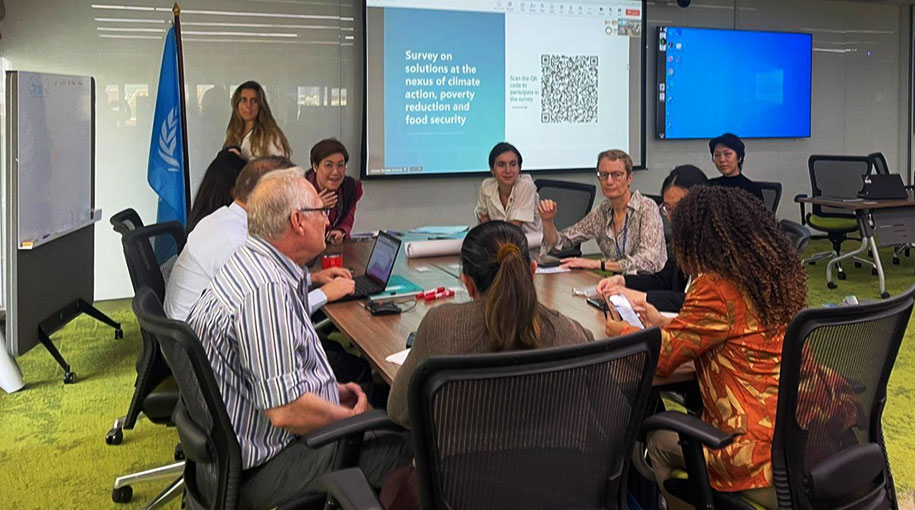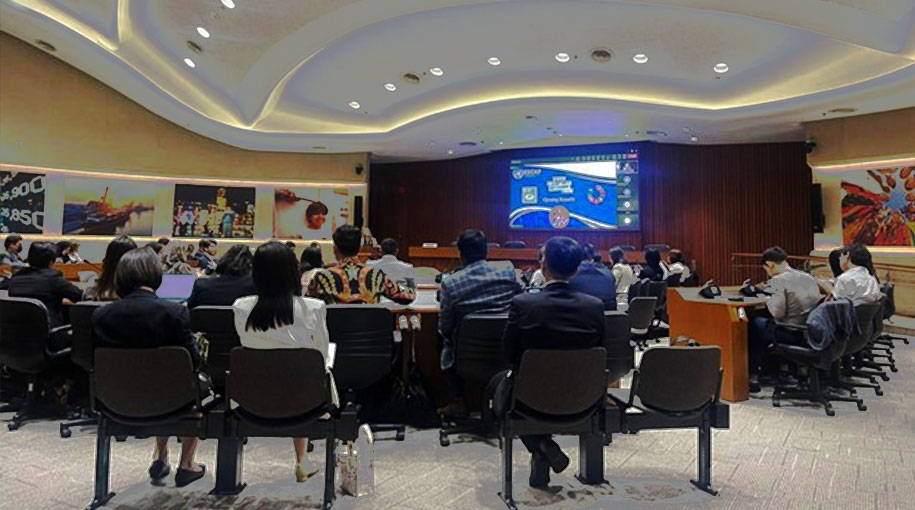"Asia-Pacific region, including Southeast Asia, is not on track to achieve any of the 17 SDGs by 2030."
A United Nations Economic and Social Commission in Asia-Pacific (UN-ESCAP) representative pointed out that need for the Asia-Pacific region to improve its efforts toward the achievement of sustainable development goals (SDGs) during the Seventh South-East Asia Multi-Stakeholder Forum and Associated Events held at Bangkok, Thailand on 6-8 November 2023 attended by government representatives, regional and international organizations, United Nations agencies, human rights institutions, and civil society organizations (CSOs), among others.
With the theme "Reinforcing the 2030 Agenda and Eradicating Poverty in Times of Multiple Crises: The Effective Delivery of Sustainable, Resilient, and Innovative Solutions in Asia-Pacific", the forum highlighted salient points emanating from the discussions and aimed to foster the development of partnerships to overcome challenges and achieve the countries’ sustainable development aspirations, positively impacting the environment, society, and economy.
In preparation for the 2024 High-Level Political Forum on Sustainable Development, the forum reviewed the progresses of SDGs 1 (No Poverty), 2 (Zero Hunger), 13 (Climate Action), 16 (Peace, Justice, and Strong Institutions), and 17 (Partnerships for the Goals), focusing on eradicating poverty while addressing the impacts of multiple crises. This forum is part of a series of five sub-regional forums taking a holistic approach toward addressing the 2030 Agenda for Sustainable Development in the new global environment and delivering urgent near-term action.
As artificial intelligence (AI) is now emerging as a tool that can derive technological innovation and transformative change across different sectors by facilitating data-driven decision-making, optimizing resource allocation and identifying innovative solutions to complex challenges, session one, Reducing Inequalities: AI for Development - Catalyzing Inclusive Development & Sustainable Progress in Southeast Asia, focused on addressing the development challenges and promoting inclusive growth in Asia and the Pacific, with a particular focus on Southeast Asia and exploring the role of AI in advancing development.
The second session contributed to the regional disclosure of SDG 17 implementation and its implications for net-zero perspectives. It aimed to guide regional stakeholders toward innovative solutions and collaborative efforts to build a more sustainable future for the region. This session, SDG 17 - Perspectives and Partnerships on Delivering the SDGs on Southeast Asia, explored the role of digital ecosystems that can facilitate collaboration between governments, businesses and civil society to achieve sustainable development.
To generate renewed progress towards food security and nutrition in Southeast Asia, and to put the region back on track toward achieving SDG 2, solutions are needed to transform food systems and to reduce and mitigate the impacts of the COVID-19 pandemic and increasingly severe climatic shocks, with a particular focus on vulnerable populations. The third session took stock of the most recent trends related to food security and malnutrition to examine the potential of digital technologies to improve progress towards these targets.
The fourth session on SDG 13, Climate Action, focused on aligning foreign direct investment (FDI) and investment promotion agencies' (IPAs) strategies to help in achieving climate goals. The session also looked at how utilizing digital innovation can boost efforts in attracting climate FDI.
Migration can be a powerful tool for achieving the SDGs by promoting the development of social and economic remittance, knowledge, and skills transfer, hence, session five on SDG 16 highlighted how technology and digital solutions can be harnessed to address migration-related challenges, foster regional cooperation and explore opportunities for integrating the principles and objectives of the global compact for migration (GCM) into national and regional policies to enhance coherence and effectiveness.

The third day was allotted for associated events of the forum including the SDG Partnership Forum and Voluntary National Reviews (VNRs) Clinic. The SDGS Partnership Forum was a 2-hour consultative session that aimed to gather feedback and inputs from governments, international organizations, academia, think tanks, CSOs, and other subregional SDG practitioners on the 2024 Asia-Pacific SDG partnership report covering the interconnected challenges of climate change, poverty, and food security as well as the solutions, good practices, and policies that tackle the issues within this nexus in a time of multiple crises while the Voluntary National Reviews Clinic presented ESCAP's support and tools for VNR preparation and promoted collaboration among countries in Southeast Asia for VNRs and SDG acceleration.
Outcomes and recommendations derived from the forum will feed into regional and global processes, including the annual Asia-Pacific Forum for Sustainable Development (APFSD) on February 2024 and the High Level Political Forum on Sustainable Development (HLPF) on July 2024.


